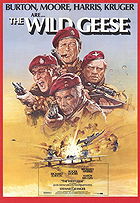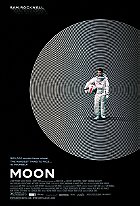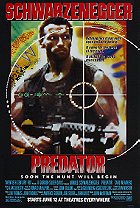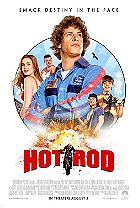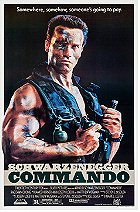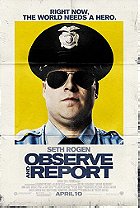To begin this review on a clichéd but nonetheless justified note, The Imaginarium of Doctor Parnassus (the latest motion picture of Terry Gilliam - best known as a piece of the Monty Python puzzle) has been saddled with an unreasonable burden. The fact that this movie features the final acting performance of the late Heath Ledger (who passed away during filming) will likely throw audiences and critics off the scent. Audiences viewing this movie on account of Ledger (or Johnny Depp, who is given a brief cameo appearance) will walk away disappointed - The Imaginarium of Doctor Parnassus is not a Heath Ledger film; it's a Terry Gilliam picture, meaning that it's a true oddity of a movie as opposed to a mainstream fantasy fare. Gilliam is a filmmaker recognised for creating peculiar cinematic flights of fancy with strange scenarios and trippy dream-like sequences (he was behind Fear and Loathing in Las Vegas, Brazil, 12 Monkeys, etc), so for The Imaginarium of Doctor Parnassus the filmmaker has cooked up an elaborate, fantastical tale of travelling theatre performances, the afflictions of mortality, and a portal (flimsily disguised as a mirror) that ushers you into a world of your dreams.
The titular Dr. Parnassus (Plummer) is a centuries-old showman who travels around contemporary London in a rickety horse-drawn carriage with a troupe of performers resembling a medieval pantomime. Their performance centres on a magic mirror, through which audiences can enter a surreal world that projects their innermost desires. From there, they are faced with a choice: succumb to their baser, more cowardly wishes, or opt to follow their more noble side. But little do Parnassus' actors know that he made a deal with the devil: in exchange for eternal life, Parnassus agrees to give the devil (played by Waits) his first child on her 16th birthday. And that birthday is fast approaching...
Terry Gilliam, it would seem, is a cursed filmmaker - he has suffered some horrendously bad luck during most of his projects. Brazil was recut by Universal, The Man Who Killed Don Quixote was shut down completely after being beset with problems, and The Adventures of Baron Munchausen was dumped by Columbia. When Ledger died in January 2008, it was all too familiar. Gilliam's response to the tragedy was admirable - since the film is split into two worlds, fantasy and reality, and the footage featuring Ledger constituted the "real world" sequences, Gilliam was able to retool the script and hire three additional actors to play Tony (Ledger's character) in the fantasy sections: Johnny Depp, Jude Law and Colin Farrell (all of whom donated their pay to Ledger's daughter). The explanation behind the different appearances of Tony is that in the imaginary world, he becomes a projection of his own, and other people's desires. It's a seamless solution to a terrible setback, and the film as a whole comes across as remarkably cohesive.
A speech delivered by Johnny Depp at one stage appears to pay direct tribute to Ledger - Depp stands beside a river as miniature boats float by which display images of celebrities who died young (like James Dean and Rudolph Valentino). He eulogises them as never growing old or ugly, and explains that they'll survive as "gods" in the mind of the public.
Unlike Ledger's scene-stealing turn in The Dark Knight, his character in The Imaginarium of Doctor Parnassus is more low-key, though he's still captivating and full of energy. However Gilliam's film is not exactly the most fitting end to Ledger's career - it's not that he isn't good, but that this is an ensemble piece and he's no more interesting than anyone else around him (he only receives top billing out of sheer courtesy). In fact, there's no sign of Ledger for half an hour until the inescapably morbid sequence when he's found hanging under a bridge. Johnny Depp, Jude Law and Colin Farrell submit perfectly adequate work as the alternative appearances of Tony. To their credit, they all manage to embody the character and it's easy to accept the adjustment (especially if one remembers that in dreams, people often look like somebody else).
The Imaginarium of Doctor Parnassus was scripted by Gilliam and Charles McKeown (who worked together previously for Brazil and The Adventures of Baron Munchausen). In many ways, this is a typical Gilliam film - from the style (the use of hallucinatory imagery) to the very Gilliam-esque theme that there's redemption to be found in imagination and dreaming. For this venture, the writer-director is given the limitless capabilities of CGI. Gilliam has produced sumptuous imagery using more old-school effects, and therefore the finest computer-generated moments of this movie are utterly dazzling. The melding together of modern London urbanscapes with the ancient production design of the Parnassus carriage and the CGI wonderlands beyond the mirror is a spectacle of the highest regard.
The fantasyland bursts with pure strangeness; allowing Gilliam the freedom to be his usual self. In fact, there are numerous sequences which feel like old Monty Python animations that have been enhanced with contemporary CGI. Unfortunately, though, for all the extravagant imagery, the film lacks characters to genuinely care about or relate to. A key problem also emerges during the middle section when the emotional core fades and nothing close to a satisfying or workable story emerges. Gilliam may have an eye for enthralling imagery, but he also has a tin ear for dialogue - the characters spout some pretty dull lines from time to time. While some have criticised the story as messy, one simply needs to pay attention - it's a perfectly straightforward narrative presented in an admirably unconventional and unpredictable fashion, and it asks an audience to draw their own conclusions. There's no problem with a movie that asks an audience to engage their brain.
Terry Gilliam remains a fascinating moviemaker with the ability to amaze. Happily, The Imaginarium of Doctor Parnassus is a spellbinding dosage of classic Gilliam. To lose a leading actor partway through production and have the creative intelligence required to retool the narrative in a way that still makes sense is a testament to Gilliam's artistic tenacity that makes his work so interesting.
7.9/10
 Login
Login
 Home
Home 183 Lists
183 Lists 1665 Reviews
1665 Reviews Collections
Collections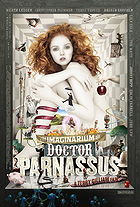
 0 comments,
0 comments, 